
31 October - 1 November 2019 in Berlin, Germany
Physicians sessions
By Tobias Alexander, Autoimmune Diseases Working Party Secretary, Department of Rheumatology and Clinical Immunology, Charité University Medicine Berlin.
The ADWP Educational Meeting was held in the historic part of Berlin in close proximity to the Charité - University Medicine Berlin. With 119 attendees from 14 countries, including participants from Brazil, North America and Russia, this meeting was the most successful educational event of our working party. In addition to hematologists, it again attracted autoimmune disease experts (rheumatologists, neurologists and gastroenterologists) as well as basic and clinical scientists. Thanks to support of the EBMT Nurses Group, 14 nurses from 5 countries also attended the meeting, who had separate discussions in breakout sessions (read the nurses' report below).
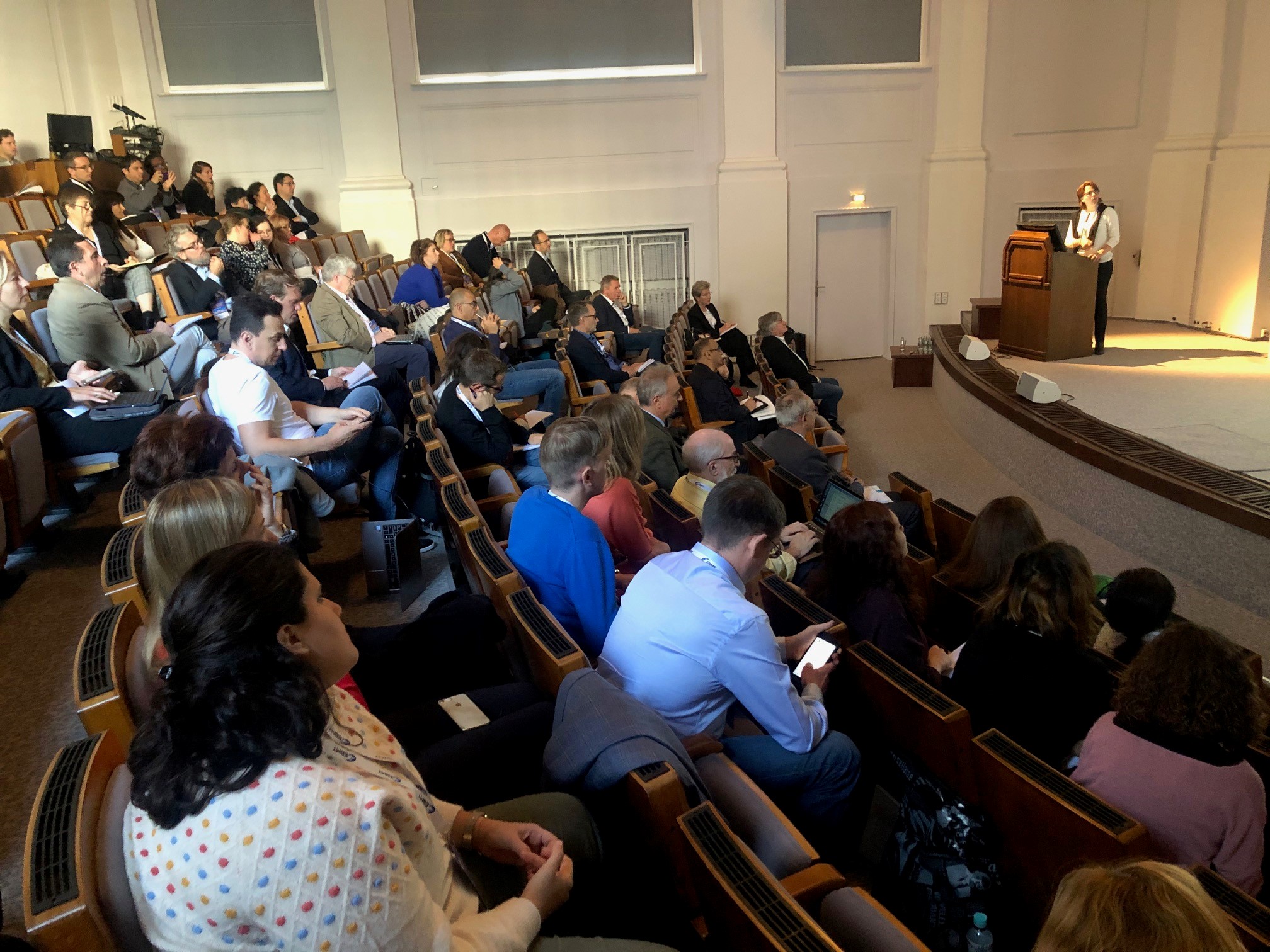
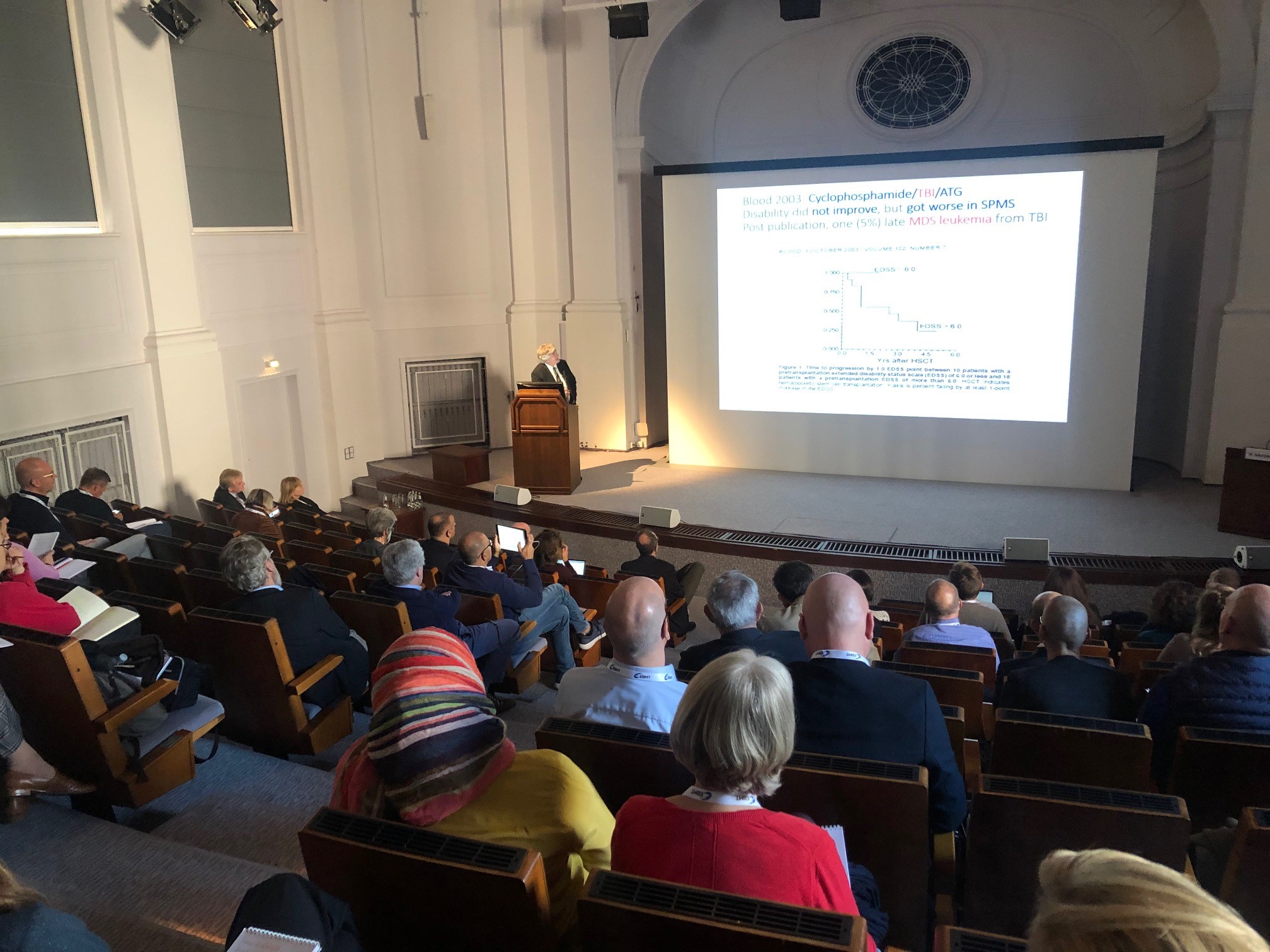
The first day of the meeting focused on immunologic aspects and common themes in transplantation, such as conditioning regimens, followed by a session about challenges and opportunities of CAR T cell therapy in autoimmune diseases. In the first set of talks, Andreas Radbruch (Berlin) and Paolo Muraro (London) discussed the role of the autoreactive immunologic memory in autoimmunity and how it may be reset into a self-tolerant state using autologous HSCT. Subsequently, Richard Burt (Chicago) and Keith Sullivan (Durham) shared their experience in HSCT for multiple sclerosis and systemic sclerosis and outlined future directions in HSCT by adaptation of transplant techniques to disease-specific requirements. Finally, Stefan Miltenyi (Miltenyi Biotec, Bergisch-Gladbach) and Boris Böll (Köln) highlighted recent advances and translational scientific developments CAR T cell therapy and its potential future role in the treatment of autoimmune diseases.
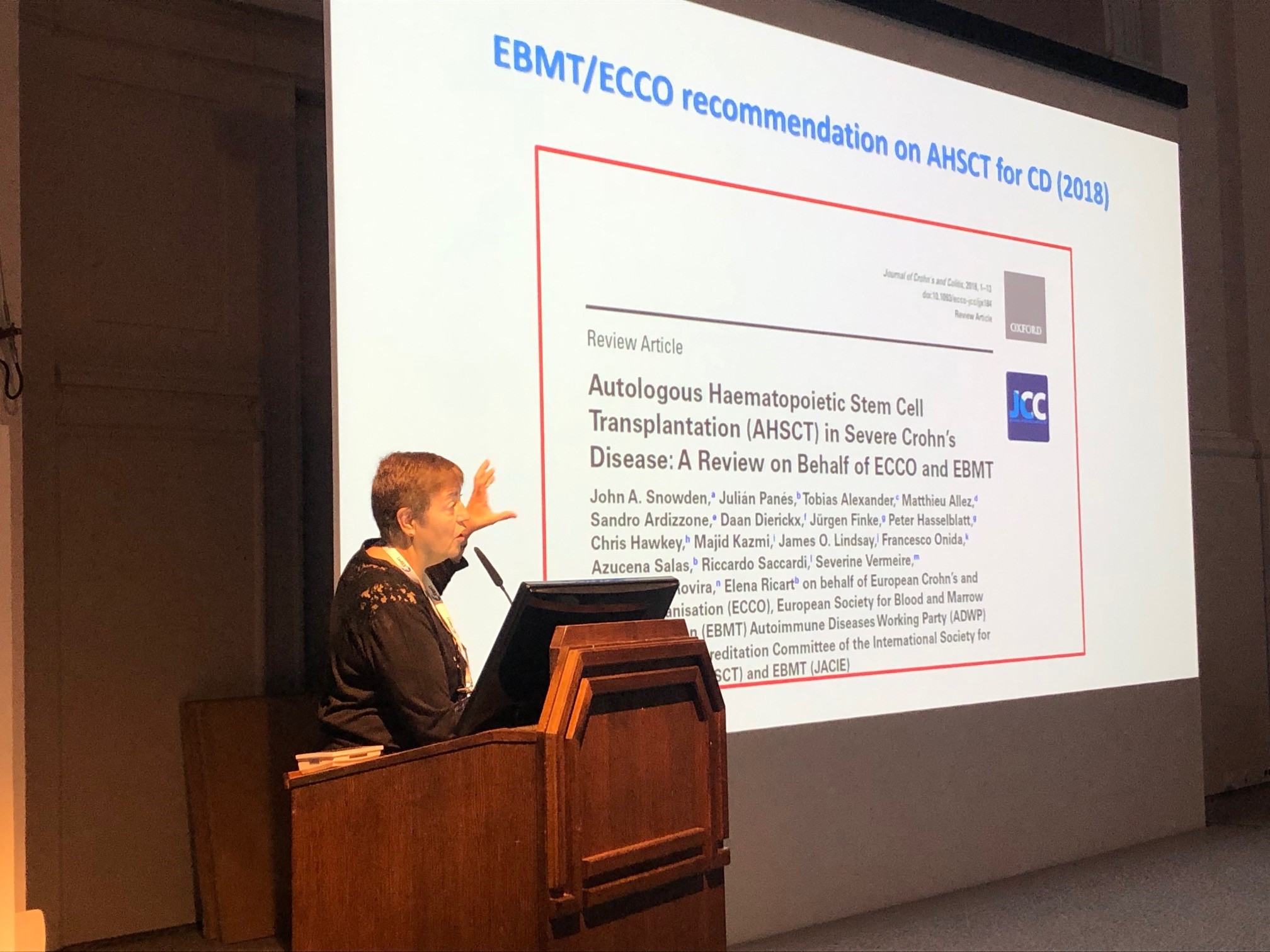
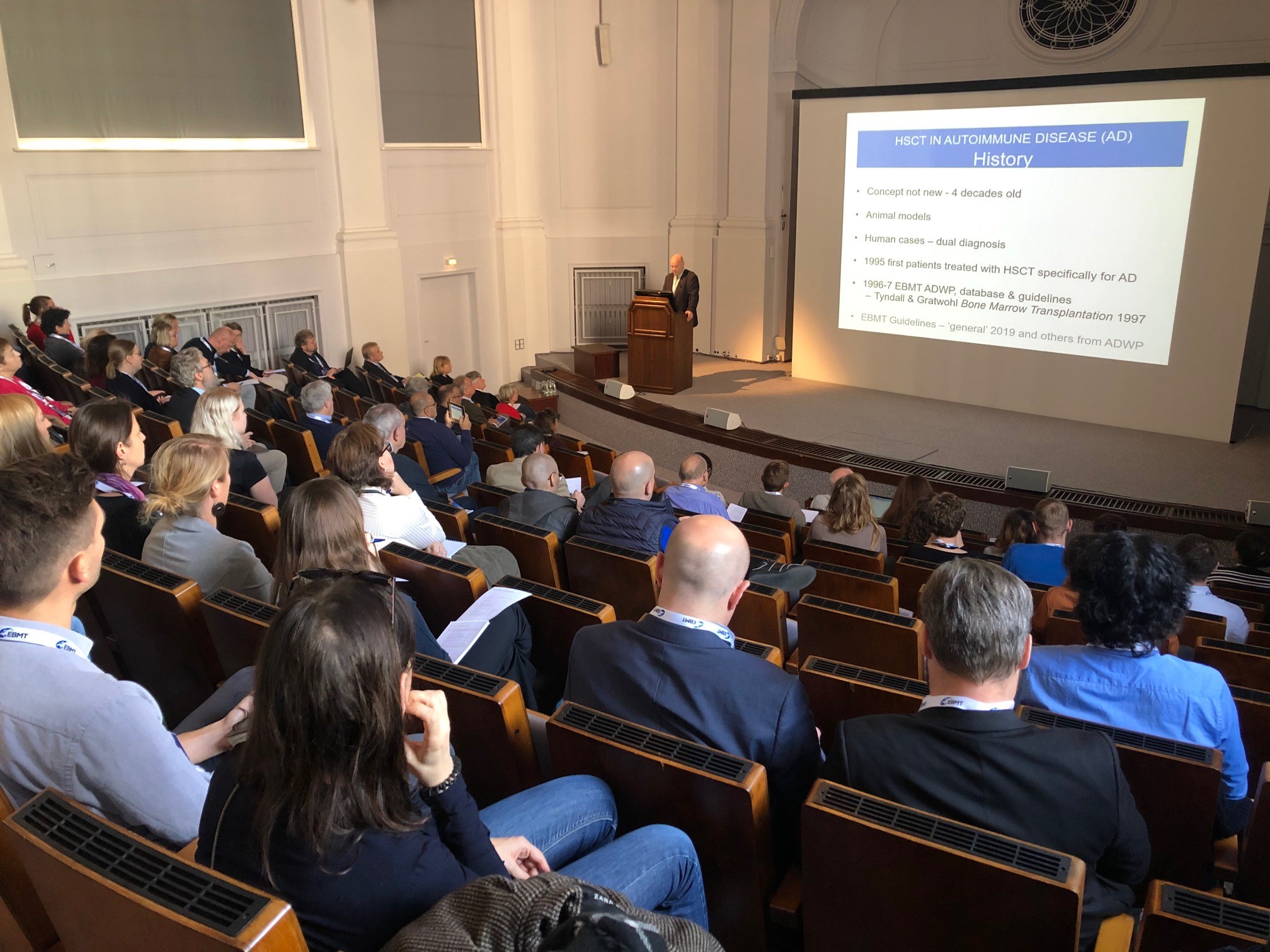
The second day of the meeting started with state-of-the-art lectures on the major indications for HSCT in autoimmune diseases. The leading experts in the field gave presentations about Multiple Sclerosis (Riccardo Saccardi, Florence), Systemic Sclerosis (Dominique Farge, Paris), Crohn´s Disease (Montserrat Rovira, Barcelona) and Typ-1 Diabetes and other rare indications (Maria Carolina Oliveira, Ribeirão Preto).
Disease-specific topics were subsequently addressed in separate breakout sessions for the major indications in neurology, rheumatology and gastroenterology. Common aspects discussed were refinement of patient selection criteria, local or national experiences, translational immunologic studies and future clinical trial developments.
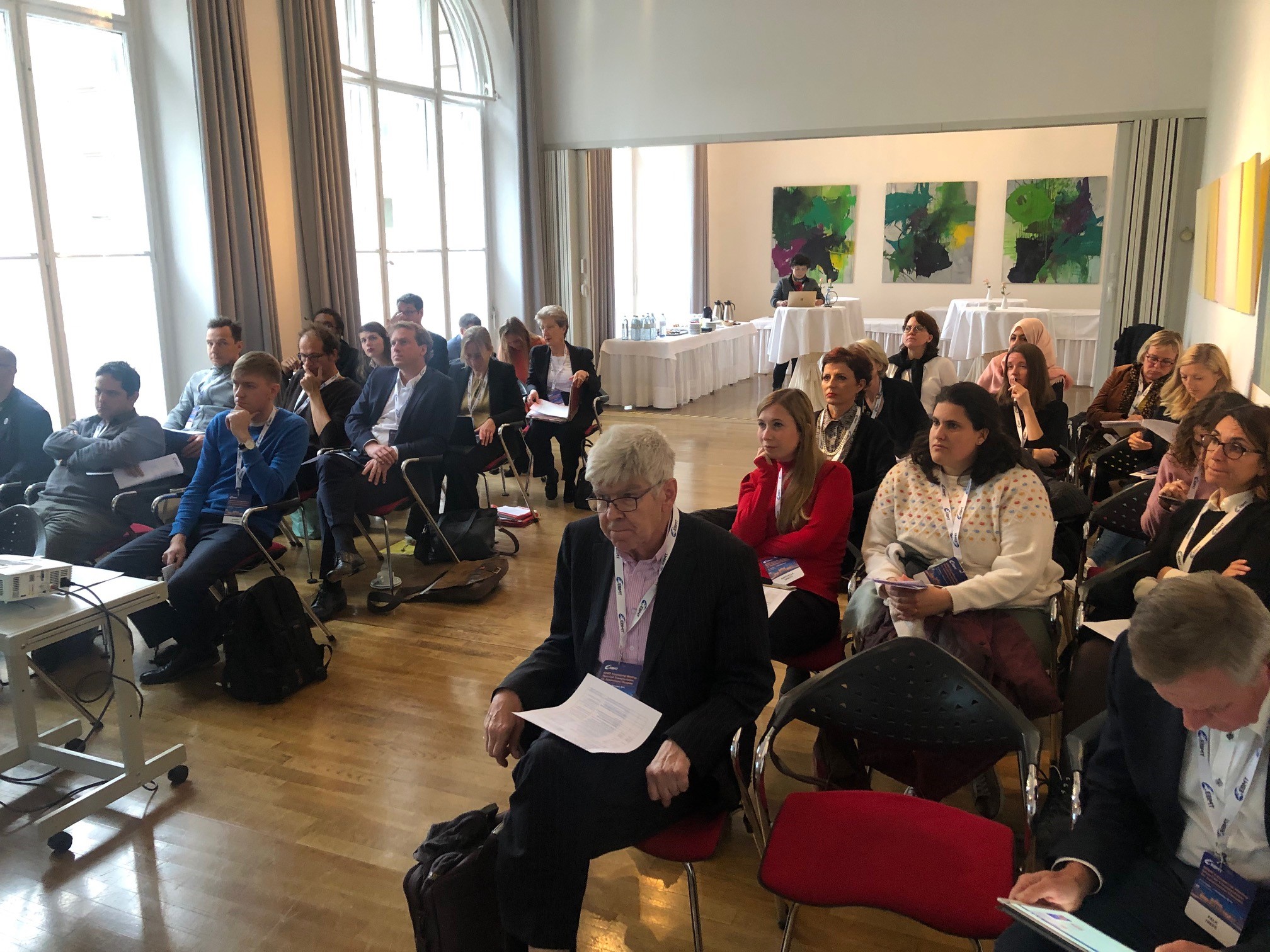
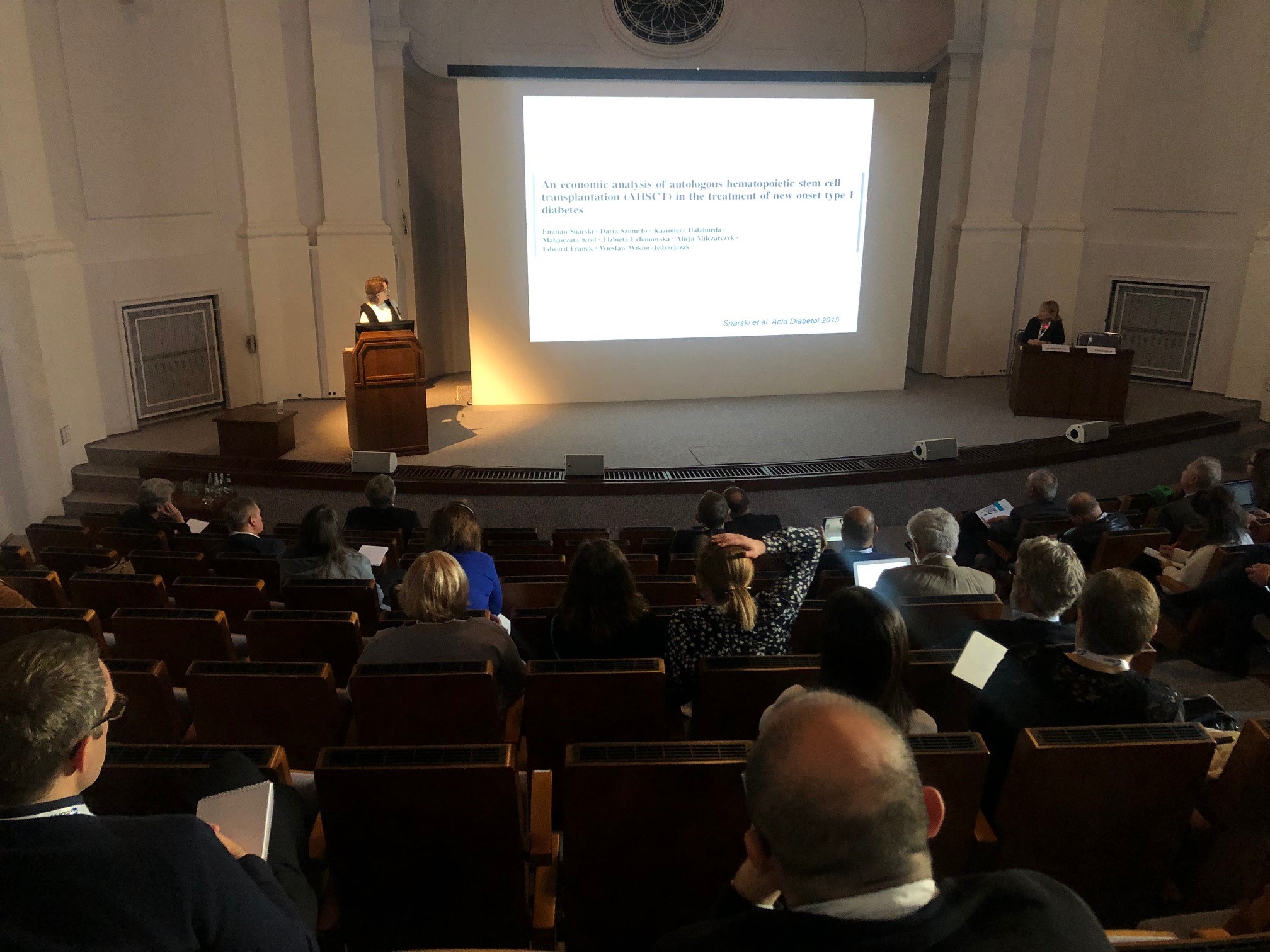
In the final “cross-fertilization” session, important aspects of HSCT across indications were discussed, such as real life ‘exposure’ versus ‘dose’ of ATG-levels (Jürgen Kuball, Utrecht), fertility and gonadal protection (Nina Salooja, London), post‐transplant Cyclophosphamide to enhance immune tolerance (Raffaella Greco, Milan) and role of HSCT in monogenetic pediatric diseases (Arjan Lankester, Leiden).
The Educational Meeting coincided with the 30th anniversary of the peaceful revolution and fall of the Berlin Wall. We commemorated this historic event with a social dinner in a restaurant directly at the former Berlin Wall near the Reichstag, where personal memories and reflections were shared among attendees.
Hope to see you all 2020 for the next ADWP Educational Meeting in London.
Nurses parallel session
By Anna Carmagnola, Senior Staff Nurse in the BMT Unit at the San Raffaelle Hospital in Milan and Bethany Colton, Nurse and clinical educator from the Royal Hallamshire Hospital in Sheffield, UK.
Claudia Boglione firstly explained that Multiple Sclerosis (MS) is an inflammatory disease of the central nervous system that damages or destroys myelin producing a variety of neurological symptoms. MS is an autoimmune disease and Autologous Haematopoietic Stem Cell Transplant (AHSCT) can be a therapeutic option for patients, particularly for Relapsing-‐Remitting MS. The treatment goals are to arrest the worsening of neurological disability, induce a prolonged medication-‐free interval, and potentially effect an improvement in neurological function. Important aspects during hospitalization are adjustment of the room for patients with motor disability and motor rehabilitation, because patients may experience a worsening of motor capacity. Other aspects of nursing care are monitoring hyperthermia caused by conditioning, amount of diarrhoea, and fluid balance, patients may require urinary catheterization. It is also important to provide emotional support to patients.
Tina Hansmann then provided a presentation on Rheumatic diseases, specifically systemic sclerosis. She provided an overview of risks and issues that come with this patient group, including, malnutrition, skin defects, overhydration, neutropenia, and the complications of having central venous access device. There was specific focus on the importance of dietetic input, including providing a soft diet, the use of high-‐energy supplements and total parental nutrition if necessary.
Ariadna Domenec, then explained that Crohn’s disease is a chronic inflammatory disorder of the digestive tract, with exacerbations and remissions. 25% of patients do not respond to therapy with corticosteroids, immunosuppressants or anti-‐TNF, and more than 80% of patients require surgical treatment. Uncontrolled active disease, risk of short small bowel syndrome following surgical resection or when the patients do not accept a definitive stoma, are selection criteria for AHSCT. Careful evaluation before treatment is important, as common complications are suprarenal insufficiency, perianal abscess and abdominal sepsis. During hospitalization nurses must check vital signs, daily weight and fluid balance and all signs and symptoms of complications related to the conditioning regimen and neutropenia.
Helen Jessop then explained that not all health services provide AHSCT for ADs. She explained that patients often search for information on the Internet, finding self-‐referential transplant units that often require self-‐funding. This has led to concerns that patients are being accepted for AHSCT often far from their homes. She outlined that patients should be encouraged to ask if treatment is available within their own health service, seek an independent specialist opinion, verify JACIE accreditation of Units, ensure support post treatment is available and what the potential cost may be. Helen highlighted the available consensus information for patients via the EBMT website.
To end the session, we had the pleasure of 2 patients sharing their experiences of travelling abroad to receive treatment for MS. Both travelled from Germany to Italy, having been refused treatment locally. They explained the complications that travelling abroad had caused, including the financial difficulties they had faced. Both voiced the positive improvements they had noted post treatment, specifically increase in mobility and reduction in fatigue and both spoke very highly of the care received.
The nurse sessions really highlighted that it is vital that when caring for autoimmune disease patients we think outside our usual haematology scope, having an understanding of these conditions is essential if we are to continue to provide high quality and effective care.
